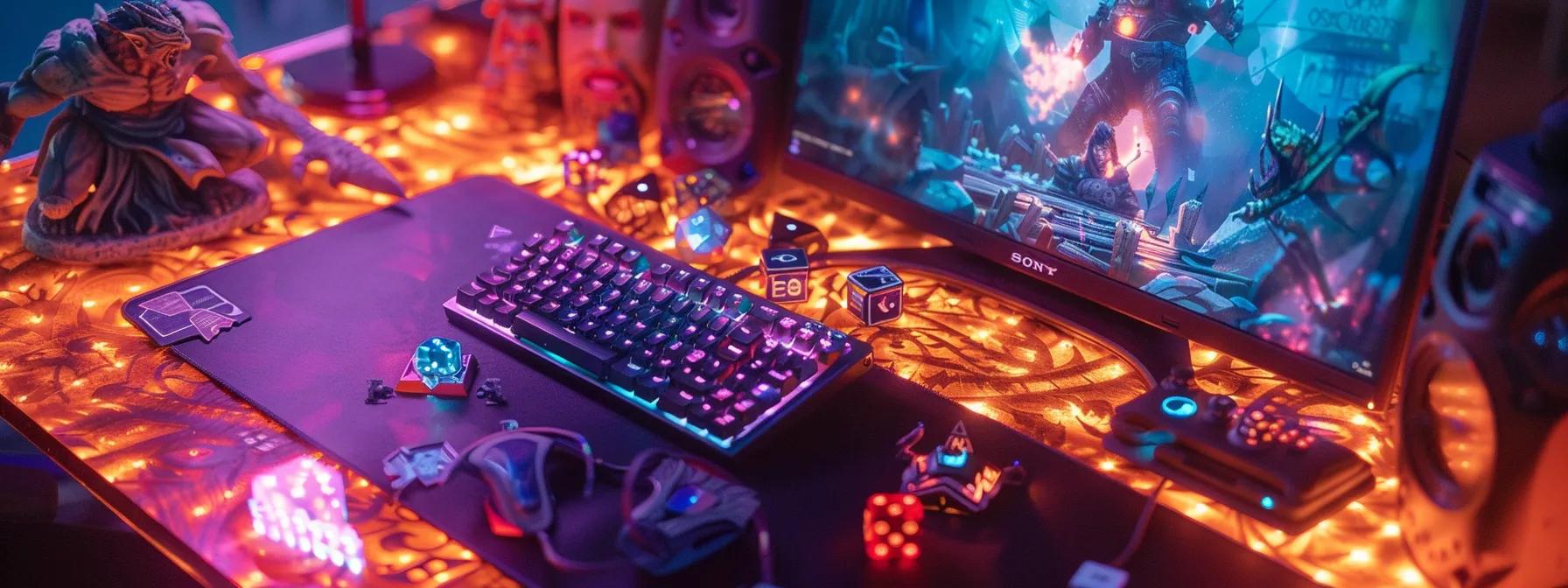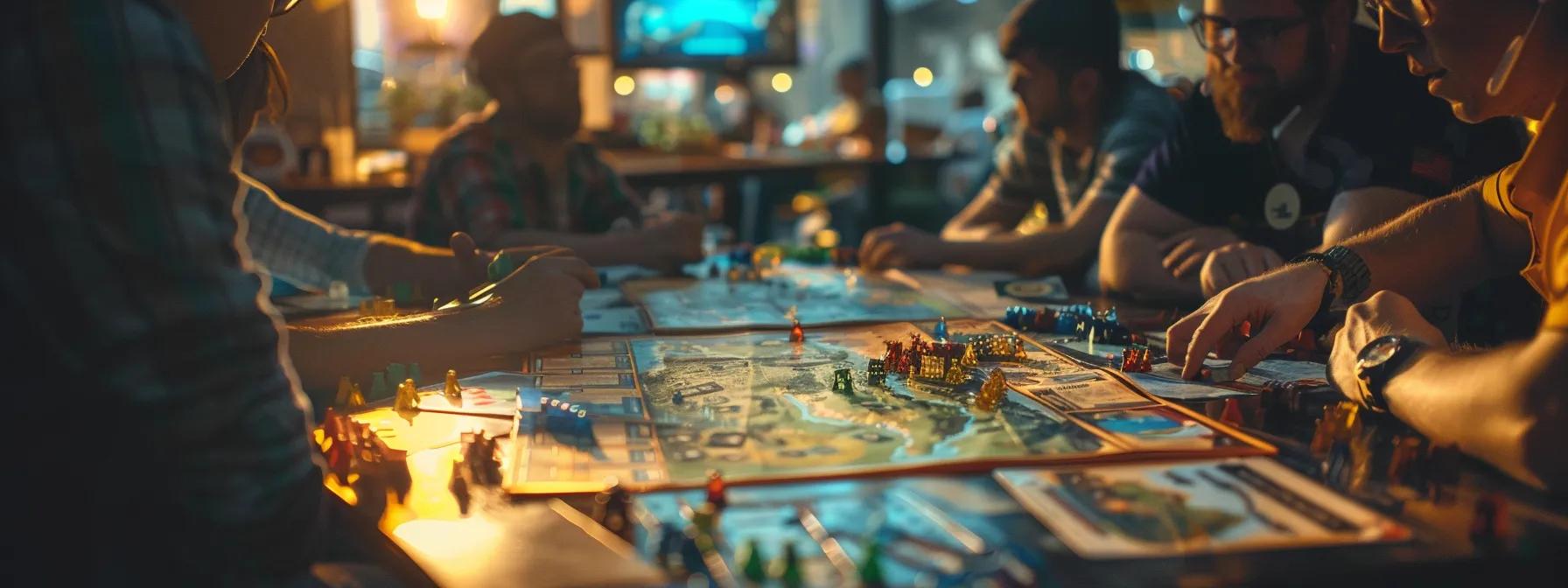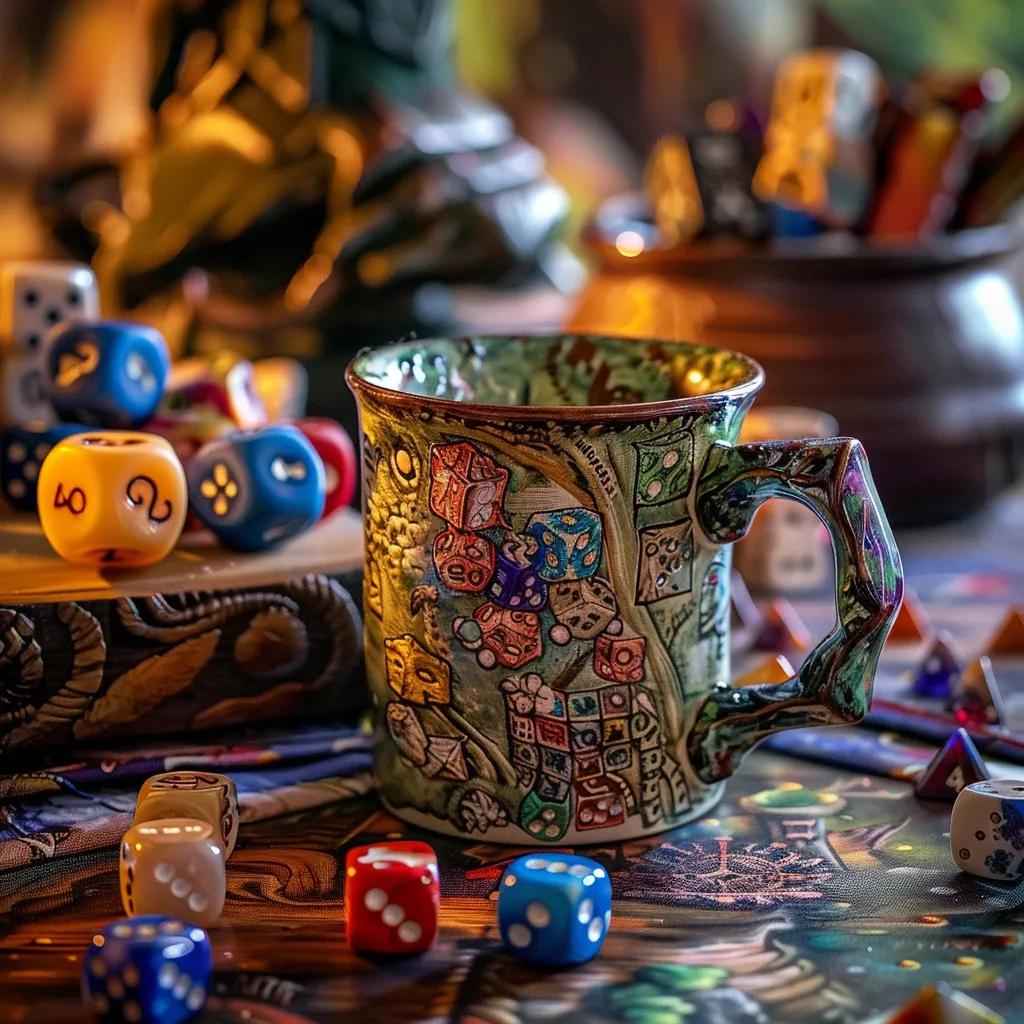
Strategies for a Great Dungeons and Dragons Online Experience
Welcome to your ultimate guide on playing Dungeons and Dragons online for free (play-dnd-online-free). Whether you’re a seasoned dungeon master or a curious newcomer eager to explore a virtual realm of fantasy, this article will walk you through setting up an online D&D game without spending a dime. The digital transition in tabletop RPGs now lets you assemble a group, create immersive characters, and navigate epic storylines from your home. This guide provides essential information—from the tools needed to join a game to shaping your character and connecting with a supportive online community. By exploring free virtual tabletops, including innovative setups like fabletop, community forums, and online resources, you’ll discover how digital play compares with traditional tabletop sessions while still preserving the core storytelling and strategy of D&D, celebrating the tabletop cultural impact of classic sessions. Let’s dive in and see how you can shift from physical dice rolls with secure dice-storage to an engaging browser-based adventure that blends creativity, strategy, and camaraderie.
Getting Started With Dungeons and Dragons Online Play
Starting online D&D play requires technical know-how, preparation, and a love for storytelling. First, gather the essential tools and get familiar with how digital sessions differ from traditional play. In online play your role—whether player or Dungeon Master (DM)—shifts to a digital setup that simulates dice, maps, and character sheets. Platforms like Roll20, Fantasy Grounds, or browser-based tools provide video and text communication while replicating tactile experiences such as dice rolling and map navigation.
For your first session, you’ll need a reliable internet connection, a computer or tablet, a webcam and microphone, and a digital version of the ruleset you’re using. Many platforms offer free versions that support character creation, interactive maps, and shared dice rollers. Free online character sheets help track stats without the need for printed paper. Although there might be an initial learning curve, online tutorials and practice sessions help build confidence. Digital play also offers built-in chat functions, customizable backgrounds, and integrated sound effects that enhance your epic quests.
Understanding the digital structure is key. Unlike traditional sessions that use physical tokens and dice, online play relies on digital tokens, shared screens, and fluid voice chat. Veteran players on forums and subreddits share shortcuts, platform-specific tips, and house rules to boost your experience. Be ready to troubleshoot creatively as you discover new, innovative ways to tell your D&D story.
What You Need for Your First Online D&D Game
To get started, select a reliable gaming platform such as Roll20 or Owlbear Rodeo. These platforms offer robust virtual tabletops with built-in dice rollers, character sheet managers, and dynamic lighting on maps, all without cost. A quality headset with a microphone and webcam is essential for clear communication during roleplaying.
Next, access digital versions of the D&D rulebooks. Wizards of the Coast provides free online resources, and fan communities offer simplified rule summaries. Digital character builders let you save progress in the cloud while tracking abilities, spells, and equipment. A free dice rolling app or built-in roller ensures fairness and excitement similar to physical dice. Finally, organize a session calendar and set a regular meeting time using collaboration tools such as Discord or Slack. With these preparations, you’ll be ready for your first free online D&D adventure.
Understanding the Basics of How to Play Dungeons and Dragons Online

Playing D&D online blends traditional storytelling with digital enhancements. The basic rules remain the same—you and your group collaboratively create a narrative where every decision counts. Digital platforms simulate the DM’s role with automated dice rollers, dynamic maps, and real-time chat. Sessions typically start with a briefing where the DM outlines the adventure, sets the scene using vivid language, and assigns roles. Digital maps provide visual context, and players use tokens or avatars to represent their characters.
Learning the digital interface is vital. Spend a few minutes experimenting with moving tokens, zooming on maps, and marking important areas. Features like automated record-keeping and chat logs help track progress and enable new players to catch up easily. While the medium has changed, the core of D&D—collaborative storytelling and imaginative exploration—remains true.
Differences Between Tabletop and Online D&D Sessions
While both formats share core mechanics, online and tabletop D&D differ in presentation and pace. Traditional games use physical dice, maps, and miniatures, which many players cherish for their tactile feel. Online play transforms these elements into digital tools such as virtual dice rollers, dynamic maps with customizable layers, and real-time updated character sheets. These digital enhancements streamline gameplay and reduce manual calculations.
However, online sessions can face technical glitches or voice lag, which may slow spontaneity. Despite minor challenges, digital play can introduce creative multimedia elements like ambient soundtracks, custom graphics, and video clips that enhance immersion. Additionally, online session logs automatically archive narrative decisions, offering an easy way for game reviews or catching up on missed sessions. In short, while online play is different, it can match and even enhance the excitement of traditional tabletop adventures.
Finding Communities for Online Dungeons and Dragons Players

Community is at the heart of D&D. Online communities provide support, encouragement, and a wealth of shared experiences. Platforms like Reddit (r/DnD, r/roll20) and various Facebook groups host thousands of players exchanging tactics, sharing homebrew content, and organizing free games. Social media channels and Discord servers further unite players from across the globe, ensuring that cost never hinders participation.
These communities offer more than just logistical help. They provide emotional support and creative inspiration. Whether you need advice on character development or clarification on a rule, fellow players are eager to lend their insights in a friendly, open forum. Look for “Session Zero” events that help new players acclimate, experiment with play styles, and build confidence. Participating actively in these communities enriches your game and helps you build lasting connections within the digital D&D world.
Setting Expectations for Free Online D&D Adventures
Before diving into free online adventures, set clear expectations about what to anticipate. Free platforms, while robust, might lack some premium features (like advanced dynamic lighting or custom token libraries) found in subscription services and can involve occasional technical hiccups. Knowing these potential limitations in advance helps reduce frustration.
Free online play may attract groups that are still learning the digital landscape. Sessions might progress more slowly as everyone familiarizes themselves with the technology. This setting, however, is ideal for experimentation and creative storytelling. Clear communication about handling downtime or technical issues—such as taking brief breaks or recapping rules—creates a supportive atmosphere where both experimental and traditional play styles can flourish.
Locating Free Platforms to Play Dungeons and Dragons Online

Free platforms are the backbone of online D&D. Popular choices like Roll20 and Owlbear Rodeo offer user-friendly, robust virtual tabletops with integrated dice rollers, interactive maps, and character sheet management. These platforms feature active communities that share character sheets, map templates, and homebrew modules to enhance your game.
Other options include Fantasy Grounds and Foundry VTT, which sometimes offer trial versions or community editions for advanced players looking to experiment. Additionally, integrating communication tools like Discord or Skype with your virtual tabletop creates a seamless experience, ensuring that game planning and rule clarifications are always at hand. Experiment with a few platforms to find the one that best suits your group’s dynamics and technical needs.
Popular Virtual Tabletops Offering Free Access
Virtual tabletops (VTTs) such as Roll20 and Owlbear Rodeo have revolutionized online play. Roll20 provides an extensive free toolkit that includes map creation, token management, and built-in dice rolling, along with a passionate community that offers free assets like character sheets and art packs. Owlbear Rodeo emphasizes simplicity and ease of use, making it ideal for beginners who want to focus on storytelling. Other platforms like Astral Tabletop and Foundry VTT also offer free or trial versions for players looking to explore advanced functionalities without a subscription fee.
Using Discord for Dungeons and Dragons Online Games
Discord is the go-to communication tool for online D&D groups. With its ability to create dedicated channels for in-game chatter, out-of-character discussions, and session planning, Discord streamlines communication. Its user-friendly interface and role-assignment features ensure that every player, whether DM or participant, knows their place during the game. Many online campaigns integrate Discord with their virtual tabletops to quickly switch between visual gameplay and dynamic voice chat, ensuring everyone stays engaged.
Other Free Resources for Hosting or Joining D&D Online
Beyond tabletops and chat tools, numerous free resources enhance your digital D&D experience. Websites offer downloadable digital character sheets, rule summaries, and maps that can be imported into your virtual tabletop. Online libraries host free PDFs of D&D modules and homebrew adventures, offering a wealth of material to spark creative campaigns. Free web-based dice rollers, mobile apps, and soundtracks further enrich the gameplay experience by adding interactive and immersive elements.
Assessing Platform Features for Your Online D&D Needs
When choosing a digital platform, assess features such as ease of navigation, customer support, and compatibility with your communication tools. Consider which functionalities—like detailed maps or dynamic lighting—are crucial for your campaign. Reading community reviews and testing trial versions can help you make an informed choice. Ultimately, choose a platform that feels adaptable and customizable, allowing you to upload custom graphics, incorporate homebrew elements, and manage character sheets seamlessly, so your digital D&D experience mirrors the excitement of in-person play.
Finding a Group for Your Free Dungeons and Dragons Online Game
Finding the right group is essential for an enjoyable online D&D experience. Many players start by browsing online forums, community boards on Roll20, Reddit threads like r/LFG (Looking For Group), and various Discord servers. These platforms let you share your availability, campaign style, and experience level to find a group that suits you.
Creating an engaging profile is important—state clearly whether you’re interested in an epic narrative campaign or a one-shot adventure, and be upfront about your experience to ensure you join a supportive group. Social media sites like Facebook and specialized matchmaking websites also provide filters by play style, frequency, and platform compatibility. Reviews and recommendations from fellow players often help identify organized groups.
Using Online Forums to Join D&D Groups
Online forums are treasure troves for finding established D&D groups. When posting on Reddit’s r/roll20LFG or Roll20 boards, include your experience, availability, and preferred gameplay style. These discussions allow you to gather tips, learn about common pitfalls, and connect with veteran players who guide you on best practices and digital etiquette.
Social Media Groups for Dungeons and Dragons Online Connections
Social media groups on Facebook, Twitter, or Instagram provide additional avenues to join online D&D sessions. These platforms often host events, live-play sessions, and webinars that offer insights into effective digital gameplay. Participating in these groups not only helps you find a game, but also keeps you updated on evolving digital tools and community trends. An active presence in these groups can lead to long-term connections and more organized sessions.
Websites That Match Players for Online DD
Matchmaking websites that connect players for online D&D sessions allow you to filter based on campaign type, experience level, and session frequency. These sites include sections dedicated to free games or LFG postings. Profiles, reviews, and ratings provide insights into group dynamics while messaging systems enable you to ask questions before committing to a session.
Tips for Joining an Existing Online Dungeons and Dragons Campaign
When joining an existing campaign, attend a “Session Zero” to discuss the campaign’s tone, digital tools, and house rules. Introduce yourself clearly and be honest about your experience. During the first session, observe communication flow and digital etiquette, such as when to use voice versus text chat. Address any technical issues promptly and provide feedback after sessions. This proactive approach ensures you integrate smoothly and build rapport with your new group.
Creating Your Character for Dungeons and Dragons Online at No Cost

Character creation is foundational in both traditional and digital D&D. Fortunately, many free resources allow you to craft an engaging character without spending money. Digital character builders available on sites like D&D Beyond or Roll20 let you choose a race, class, distribute ability points, and write a backstory using intuitive, step-by-step interfaces. These tools also include built-in formulas to calculate modifiers, hit points, and skills, reducing the need for manual math and error.
Free downloadable rule summaries and video tutorials further guide you through the process, ensuring that even newcomers understand core mechanics like combat and spellcasting. Digital character sheets consolidate all your stats, inventory, and backstory in one place and can be easily shared with your DM and group to streamline gameplay.
Free Online Character Builder Tools
Websites such as D&D Beyond provide comprehensive character builder tools that simplify customization while offering explanatory tips for each decision. Community-driven platforms also offer downloadable PDFs that can be filled out and imported into your virtual tabletop.
Accessing Basic D&D Rules for Character Creation Online
Numerous free resources break down complex D&D rules into manageable sections, covering ability scores, combat, and spellcasting. These guides ensure that you make informed decisions that complement your overall campaign narrative.
Digital Character Sheets for Your Online Game
Digital character sheets replace traditional paper forms by updating automatically as your character evolves during the game. Customizable sections for inventory, spells, and experience enhance transparency and contribute to a smoother gaming experience.
Integrating Your Character Into an Online D&D Setting
Once your character is ready, most virtual tabletops allow you to import your digital sheet directly into their system. This integration links your stats to in-game tokens and maps, enabling automated dice rolls and faster resolution of combats and narrative decisions. With your character online, you can fully focus on immersive storytelling and tactical combat.
Participating Effectively in How to Play Dungeons and Dragons Online
Effective participation in online D&D hinges on clear communication, good digital etiquette, and adaptability. Use every tool available—voice chat, text chat, digital tokens, and interactive maps—to enhance your engagement. The key is to ensure that every group member remains well-informed and part of a collaborative narrative.
Practice patience as digital communication can have delays. Establish protocols for turn-taking and use digital cues like emoji reactions to signal readiness. Familiarize yourself with interacting with digital maps and tokens to visually follow the story, and contribute to discussions and worldbuilding. Balancing active participation without dominating the conversation helps maintain a smooth, creative game environment.
Essential Etiquette for Online D&D Games
Following simple guidelines such as waiting your turn, muting when not speaking, and clear communication ensures that everyone enjoys a smooth session. Respect for digital space and fellow players is crucial for a successful gaming experience.
Using Voice and Text Chat During Online Play
Both voice and text chats are vital. Use voice for dynamic roleplaying and immediate feedback. When technical issues occur, text chat serves as a reliable backup for sharing dice results or changing game narratives, ensuring the session continues without interruption.
Interacting With Digital Maps and Tokens
Digital maps and tokens provide crucial visual context during combat and exploration. Spend time learning the controls and marking significant locations. This mastery enhances both individual gameplay and group interaction as everyone follows the evolving adventure.
Keeping Your Online Dungeons and Dragons Game Engaging
To keep your game lively, encourage creative freedoms and take periodic pauses for discussion and feedback. Use digital features like custom music playlists or animated tokens to add ambiance. An engaging group blends structure with spontaneity, ensuring that technical interruptions do not derail the storytelling.
Accessing Free Adventures and Resources for Dungeons and Dragons Online

Free adventures are a highlight of online D&D, with numerous websites offering modules, scenarios, and homebrew content for download. These range from one-shot adventures to lengthy campaigns, providing fresh material for every session. Tapping into these resources lets you experiment with new storylines, puzzles, and character challenges without extra cost.
Reputable sites such as DMsGuild or DriveThruRPG’s free section offer modules created by experienced DMs, complete with maps, dialogues, and art to enrich your narrative. Online communities also share well-tested homebrew campaigns, ensuring reliability.
Free online dice rollers and soundtracks further boost the gaming experience by resolving conflicts swiftly and setting the right mood with ambient music or battle sequences. Communities continuously share tips for digitizing character sheets and integrating maps, empowering you to host visually captivating and interactive sessions.
Where to Find Free D&D Scenarios and Modules Online
Search for collections of modules on community-driven websites and official platforms that cater to various skill levels. These modules often include narrative structures, maps, NPC descriptions, and encounters that simplify the DM’s role.
Utilizing Free Online Dice Rollers
Many platforms integrate free dice rollers, which standardize results and reduce errors, ensuring fair play and maintaining the game’s pace.
Free Sound and Music Resources for Atmosphere
Ambient tracks, battle sound effects, and thematic music are available on free streaming sites, helping synchronize audio with critical game moments for enhanced immersion.
Communities Sharing Homebrew Content for Online DD
The homebrew community is vibrant online—with shared spells, campaign settings, and custom rules that let you tailor the game to your group's tastes. Engage with forums and social media to both share and acquire new content to keep your sessions exciting.
Frequently Asked Questions
Q: How do digital platforms replicate the tabletop D&D experience? A: Digital platforms offer virtual tabletops with integrated dice rollers, character sheets, maps, and communication tools. They maintain traditional gameplay mechanics while enhancing interactivity with multimedia integration, creating a seamless transition from physical play to digital environments.
Q: What are the best free virtual tabletops for online D&D sessions? A: Popular free virtual tabletops include Roll20, Owlbear Rodeo, and Astral Tabletop’s free edition. They offer dynamic mapping, integrated dice rollers, and community-shared resources, making them excellent choices for online play.
Q: Can I create and manage my D&D character online without spending money? A: Yes, there are many free online character builder tools and digital character sheets available on sites like D&D Beyond and Roll20, which let you create, customize, and manage your character seamlessly during digital sessions.
Q: How can I ensure effective communication during online D&D sessions? A: Using reliable voice and text chat tools like Discord is key. Set up clear digital etiquette—mute when not speaking and designate channels for in-character and out-of-character conversations—to ensure smooth, engaging gameplay.
Q: Where can I find free adventures and homebrew content for my online campaign? A: Free adventures and homebrew content are available on websites like DMsGuild and various community forums. These sites offer downloadable modules, maps, and narrative ideas that can be easily integrated into your digital platform.
Final Thoughts
In this guide, you learned comprehensive strategies for playing Dungeons and Dragons online for free—from setting up your digital tools to creating rich characters and integrating into supportive communities. Embrace the digital medium as a new frontier that preserves the essence of tabletop roleplaying while offering modern conveniences. By using free platforms, joining active communities, and accessing a wealth of online resources, your adventures can be just as immersive and rewarding as traditional sessions. Keep exploring, stay engaged, and may your quests be epic as you dive into the world of digital D&D adventures.




